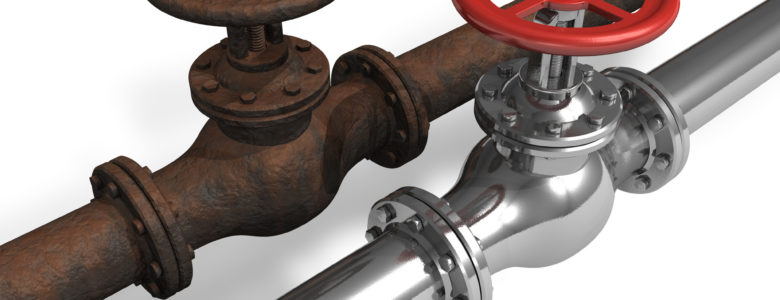What do you do about your pipes? Most homeowners install pipes and forget about them.
When they experience damages such as leaks, they just patch up their pipes or install new ones. But practicing pipe safety will save you money and time in the long-term.
Pipe corrosion is one of the worst problems that can occur with metal pipes. Corrosion eats away at the surface of your pipes, causing leaks. They often go undetected, and you don’t notice corrosion until it’s too late.
Corrosion prevention sounds difficult. But once you get in the habit, it becomes fairly simple. Use these 3 pipeline corrosion protection methods and prevent pipe damage.
1. Apply a Primer
Applying a primer or finished coating is one of the easiest pipeline corrosion protection methods. Primers act as a barrier between the steel of the pipes and the corroding elements. Primers also prevent moisture from reaching the pipes.
When there’s a coating on your pipe, it takes longer for water and oxygen to diffuse. This slows the rate of diffusion to the metal of the pipe.
Depending on the primer you use, the primer can contain anti-corrosive properties. This helps develop a high electrical resistance and absorbs moisture. Primers protect both pipe surfaces and the underlying area of the pipes.
2. Regular Cleaning
When you perform spring cleaning, don’t forget your pipes. The key to pipeline corrosion prevention is regular cleaning. Cleaning prevents corrosion; in case corrosion does occur, clean pipes minimize the corrosive effects.
You should always use suitable chemicals to thoroughly clean your pipes.
These should be applied to the inside and outside of your pipes. The moisture first targets the outside of your pipes, but debris and contaminants stick to the inside of your pipes.
To effectively clean your pipes, use chemicals and wash off debris with a brush.
For thicker deposits such as wax, use a blade.
3. Choose Specific Materials
The best way to prolong pipeline life is by choosing appropriate materials. Metal is the most common chosen pipeline material, but it can be an easy victim of corrosion.
When installing your pipeline, choose corrosion-resistant materials. These include stainless steel, plastic, and other special alloys. If you prefer to have a metal or steel pipeline, consider adding one of these materials to your pipes.
However, keep in mind these materials largely depend on the environment of the pipes. Metal is often chosen because it can survive in several environments.
Always ask your pipe installer for advice.
Use These Pipeline Corrosion Protection Methods
If you don’t monitor your pipeline, your pipes will eventually deteriorate. One of the most common pipeline problems is corrosion. Corrosion weakens the integrity of your pipes, resulting in issues such as leaks.
When this occurs, you need to reinstall your pipe system.
Simple monitoring prevents spending lots of money on a new pipe system. Common pipe protective methods include consistently cleaning your pipes and using a primer or corrosion-resistant material.
Are your pipes weakened by corrosion? We can fix any pipe leaks.



Leave a Reply